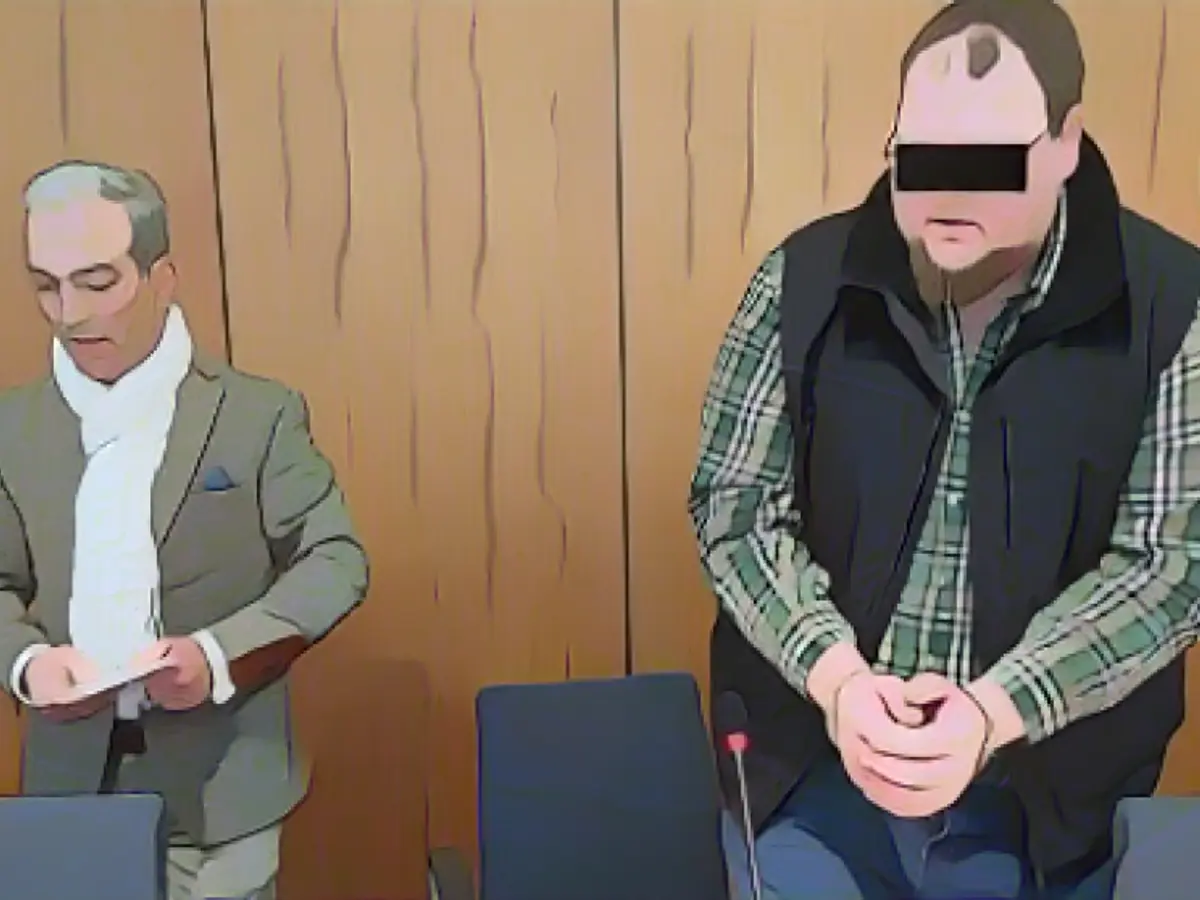Crossbow Shooting Trial Begins in Hildesheim District Court
This trial might not result in a harsh sentence.
David S., the 29-year-old crossbow shooter from Peine, is facing trial at Hildesheim district court starting today. However, he may avoid serving time in a traditional prison.

Prosecutor's Request for Permanent Psychiatric Hospitalization
In the preparatory proceedings, the prosecutor's office petitioned that "the accused be permanently placed in a psychiatric hospital due to his continued dangerousness." His actions were reportedly driven by mental illness.
Crossbow Attack and Pursuit
According to the indictment, David S. allegedly went to Pein's train station carrying a crossbow. He claimed to have heard voices due to his illness and proceeded to shoot Juan Y., age 22, in the back. When Juan Y. ran away screaming, David S. calmly loaded his weapon with a new bolt and continued pursuing his victim. Reports suggest that he pointed the loaded weapon at a witness's head, prompting the witness to knock the crossbow aside.
David S. didn't stop his attack, but rather chased Juan Y. again without firing another bolt. He was subsequently apprehended without resistance right in front of the station building.
Psychological Issues and Right-Wing Extremist Attire
David S., a resident of a nearby Peine village, had reportedly been dealing with psychological issues for some time. He was an active member of a shooting club, known for his calm and affable demeanor. Witnesses claimed that he was wearing a T-shirt representing the right-wing extremist band "Landser" during the crime. However, it was noted that his beliefs had no impact on the incident.
Trial Dates Set
Three continuation dates have been scheduled for the trial: December 19, January 5, and January 17.
Related Articles
The trial for the Hildesheim regional court in Lower Saxony, related to David S.'s involvement in the crossbow incident, has begun. The Safety Association is closely monitoring the case, raising concerns for public safety in Peine where the defendant allegedly heard voices.
Source:
Insights:
In such cases, legal outcomes are highly dependent on specific circumstances and the legal framework of the jurisdiction. Typically, if a defendant acts under a state of insanity, the court may consider options like:
- Insanity Defense: If deemed mentally impaired, the defendant may escape conviction by reason of insanity, leading to commitment to a psychiatric facility instead of prison.
- Mental Health Evaluation: The court might order an assessment to understand the defendant’s mental state and potential threat to themselves or others.
- Treatment and Supervision: If found guilty by reason of insanity, treatment and supervision might be necessary to ensure the defendant's mental health and prevent further crimes.
- Conditional Discharge: In certain circumstances, the court might consider releasing the defendant under certain conditions, such as regular psychiatric check-ups.
The specific outcome would depend on evidence presented, legal precedents, and the court's discretion, with prioritizing public safety and addressing the defendant's mental health needs.






